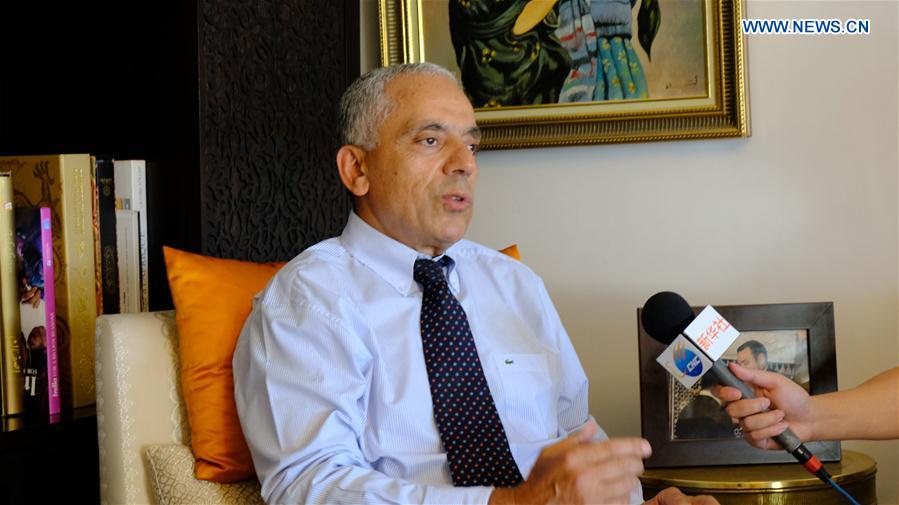
Former Moroccan Minister of External Trade Abdellatif Maazouz receives an interview with Xinhua in Casablanca, Morocco, June 17, 2019. Trade frictions between the United States and China should be resolved through dialogue and consultation, Abdellatif Maazouz has said. (Xinhua)
RABAT, June 22 (Xinhua) -- Trade frictions between the United States and China should be resolved through dialogue and consultation, former Moroccan Minister of External Trade Abdellatif Maazouz has said.
Noting that the trade volume between the United States and China accounts for a large proportion of the global trade, Maazouz told Xinhua in a recent interview that the economic growth of the two countries guarantees global economic growth.
Given the fact that the two largest economies are closely linked to the global economy, Maazouz said, the U.S.-initiated trade dispute with China is likely to have a negative impact on the global economic growth.
It is his hope that Washington and Beijing can solve the problem through dialogue, he said, adding that due to high interdependence among economies around the world, the U.S. unilateral use of pressure can not solve the issue.
The U.S. administration increased additional tariffs on 200 billion U.S. dollars worth of Chinese imports from 10 percent to 25 percent in May, and has threatened to impose tariffs of 25 percent on essentially all remaining Chinese goods sold to the United States -- valued at roughly 300 billion dollars -- which are not yet subject to extra duties.
In response, China raised additional tariffs on a range of U.S. imports on June 1.
China maintains that the two sides should solve their economic and trade disputes through dialogue on an equal footing, with the key being to accomodate each other's legitimate concerns.
Dialogue and communication are the solution, Maazouz said, adding that adhering to multilateralism, respecting the mutual interests, and abiding by the global economic order are the principles for solving trade frictions.
The prosperity of the United States depends on globalization and the pursuit of "America first" policy cannot bring long-term benefits to the country, he said.



